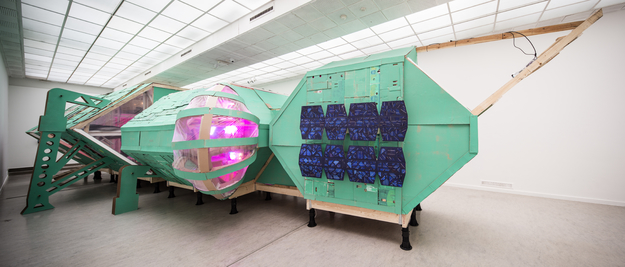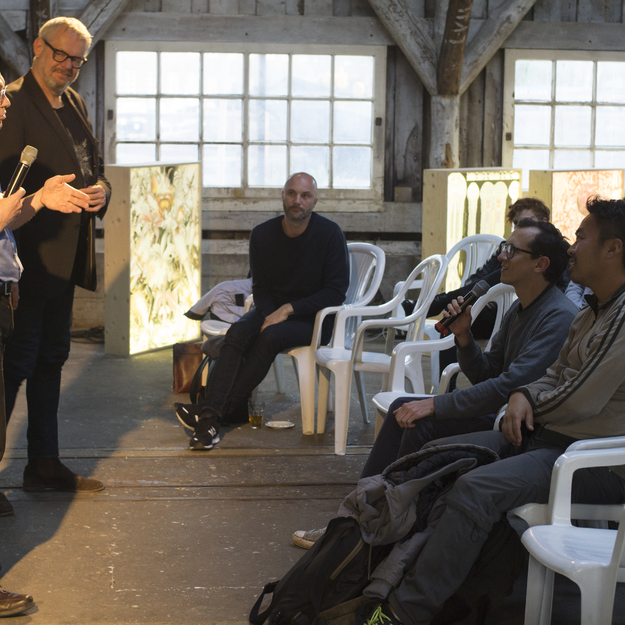Angelo Vermeulen
Angelo Vermeulen is a space systems researcher, biologist, community artist, and TED Senior Fellow. In 2009 he initiated SEAD (Space Ecologies Art and Design), an international network of individuals working in art, science, engineering and advocacy. Its goal is to reshape the future through critical reflection and hands-on experimentation. Biomodd and Seeker are the two most well-known SEAD projects. In 2013 he was crew commander of the NASA funded HI-SEAS Mars simulation in Hawaii. Currently he is in the final stage of his PHD studies at TU Delft creating new concepts for starship development. The guiding question here is: how can we reinvent space exploration in a more open and participatory way? Tonight we’ll learn more about starship design that experiments with technological, ecological and social systems to radically rethink the future of human habitation and survival.
Angelo Vermeulen on SEAD - Angelo Vermeulen introducing his initiation: the SEAD network.

MELISSA
Micro-Ecological Life Support System Alternative
Melissa is a bioregenerative system to provide life support in long term space flight and Moon and Mars bases. ESA (European Space Agency) has been working on it since 1989. Melissa aims to produce 100 percent oxygen and 2o percent food needed by a human being by recycling human organic waste (faeces and urine), carbon dioxide and mineral using the sun as an energy source. Inspired by terrestrial ecosystems, the purification process relies on the presence of algae and bacterias. How to turn waste into food, oxygen and water is not only an outer space issue. Tonight one of the founders of the Melissa project Christopher Lasseur will tell us more about one of nowadays most promising eco technologies.
Christopher Lasseur in front of Haeckel Light Boxes - Christopher Lasseur during the 7th Pis' Talk

Kamiel Rongen
Audio Visual Performance
What will the Alien Planet look like? To conclude the evening we are going to dive in the fluid soundscapes of the artist Kamiel Rongen. He creates imaginary worlds with oil, sugar and air refreshers from Albert Heijn inside a fish bowl. The result seems to be a living organism, new life in the Outer Space.
Kamiel Rongen performing 'Water Ballet' - Kamiel Rongen during the 7th Pis'Talk

Info
Pis’ Talk 7
Thursday, May 19th
Drinks and food from 18:00, talk at 20:30
Biotoop Mediamatic, Dijksgracht 6, Amsterdam
Tickets: Pre-sale €7,50 / Door: €10,- / Students €5,-
Special Discount on the Pizza Nero with your Pis’talk ticket. 10 instead of 13
NB: we will ask you to show your student id at the ticket service.


